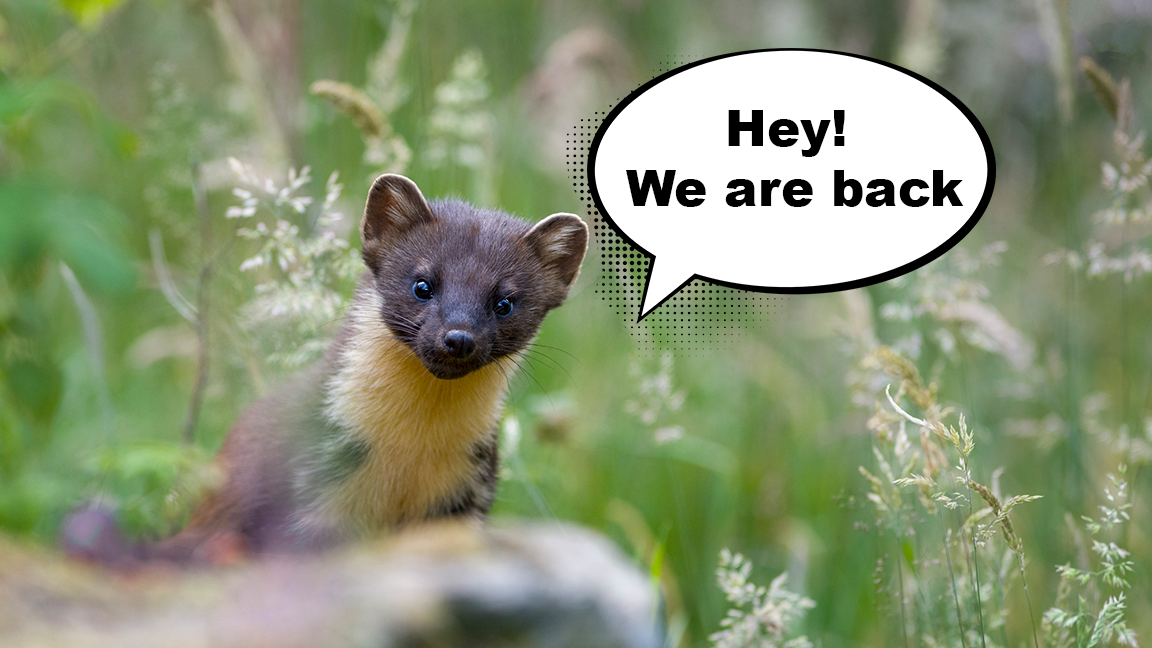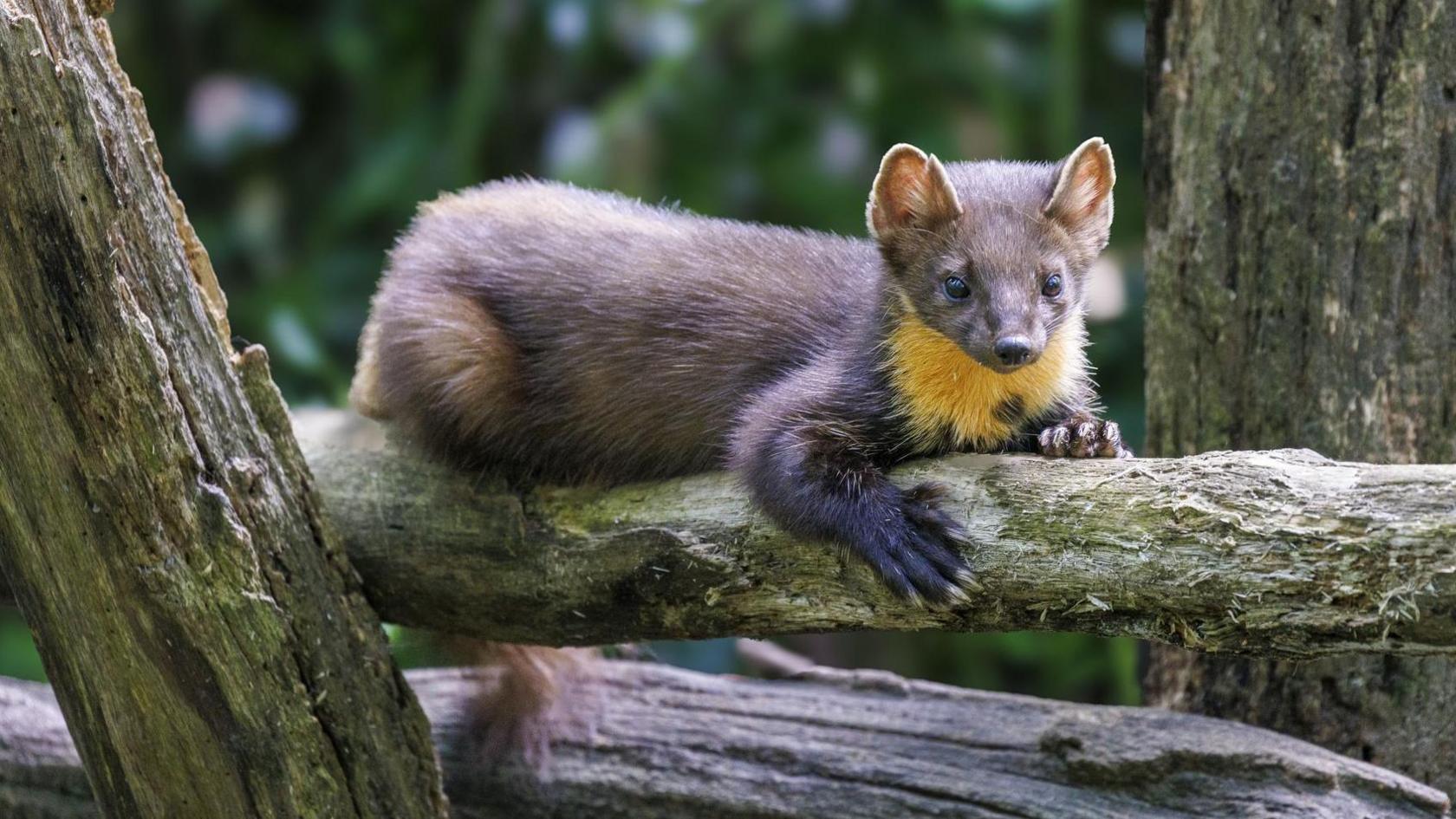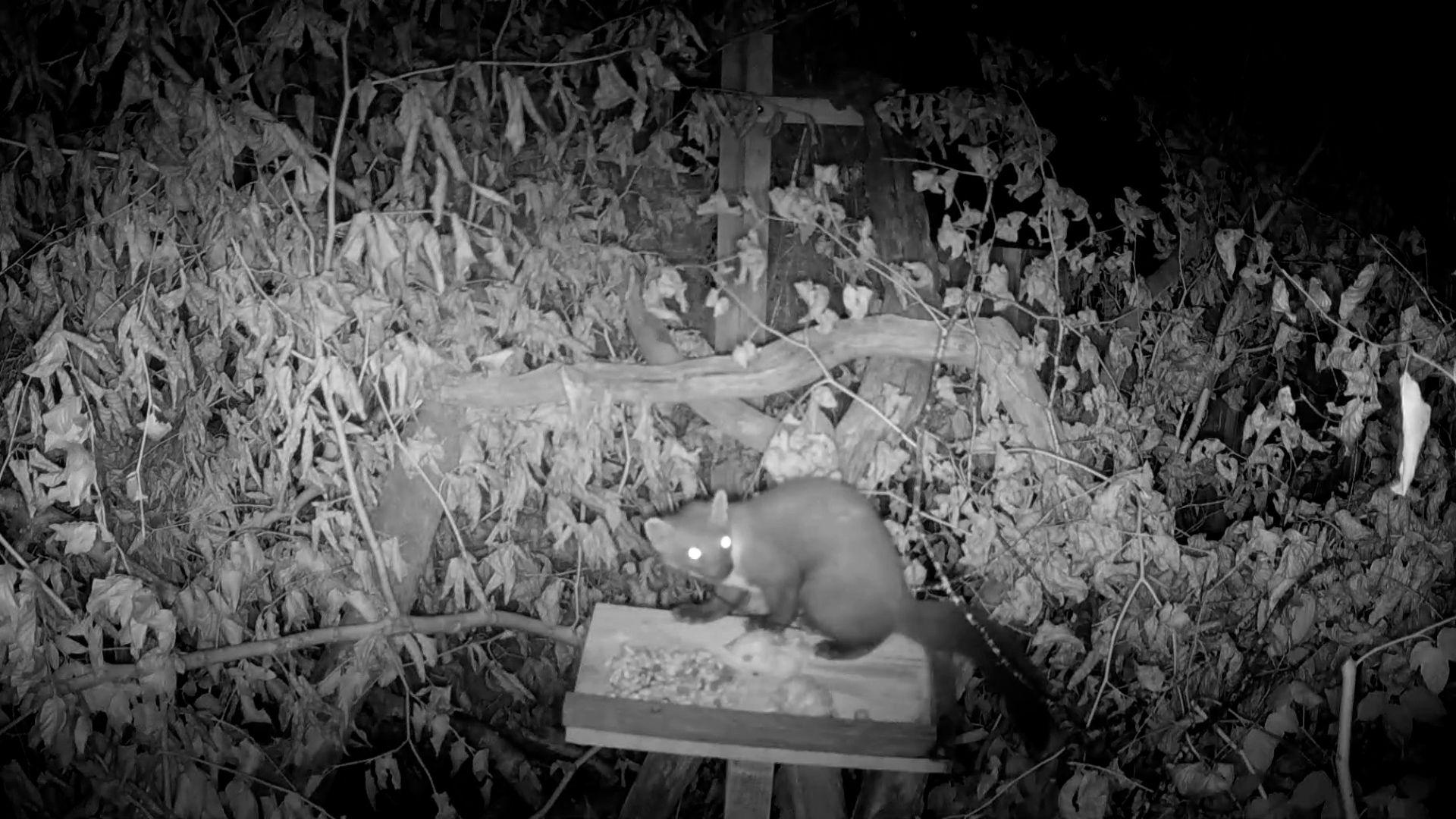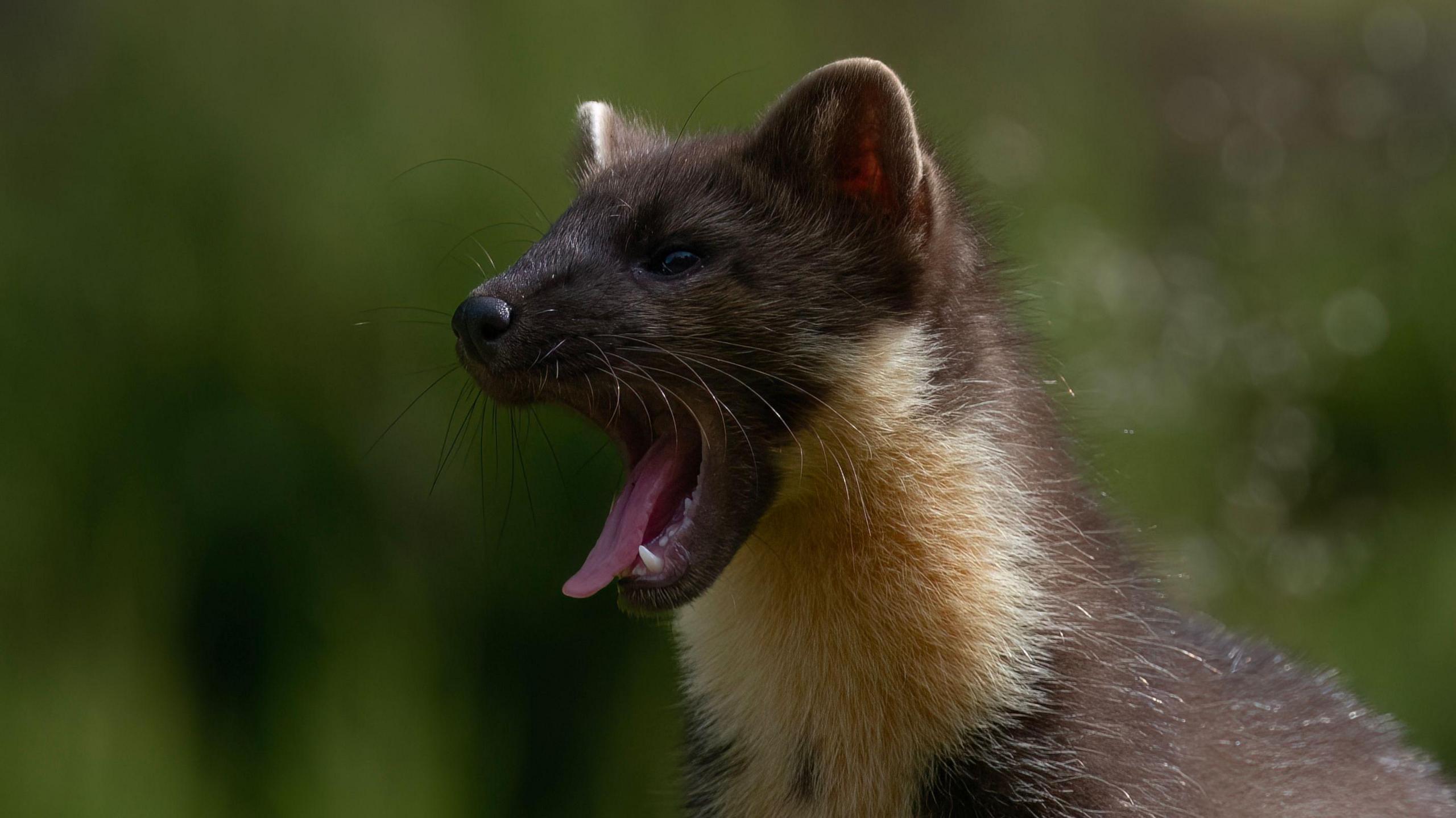Pine martens are back in Exmoor after 100 years

It's been more than 100 years since pine martens were in Exmoor
- Published
Pine martens are back in Exmoor National Park for the first time in over 100 years.
In total, 19 pine martens - nine female and 10 male - have been released into secret woodland spots to help bring nature back to life in the area.
The cute, cat-sized creatures used to live all over Exmoor in south west England, but they disappeared because of hunting and habitat loss.
Now, they're being reintroduced thanks to conservation projects like this.
- Published30 September
- Published16 January
- Published1 October 2024

Conservationists say that woodlands and wildlife will benefit from pine martens being reintroduced
After health checks, the pine martens were driven more than 500 miles (800 km) from Scotland in a specially converted vehicle.
They then spent a few days in a release pen (with fresh food and water) to help them get used to their new surroundings before they were released.
After three days the door to each pen was opened, and the pine martens were able to slip into their new wild surroundings.
To keep an eye on the new arrivals, each pine marten is wearing a special radio collar, meaning researchers can follow them over the next six to nine months.

One of the newly released pine martens grabs a snack before embarking on its new adventure
Pine martens became extinct in south west England over a century ago due to the loss and damage to their woodland habitats and the threats they faced from hunting and trapping.
Experts hope this is just the beginning of a big wildlife comeback for Exmoor.
Devon Wildlife Trust's Tracey Hamston, who leads the project, said the release of the pine martens is "a positive sign that nature can be restored".
She believes our woodlands and their wildlife will benefit from the reintroduction of the pine martens.
This isn't the first time the animals have been released, as a similar reintroduction happened on Dartmoor last year, with the first kits being born in July 2025.
Pine marten facts

1. Pine martens are part of the stoat and weasel family
2. They are usually chestnut brown in colour with a noticeable pale yellow patch on their chin and throat
3. Pine martens are shy, nocturnal animals - meaning they are active at night - and can be very hard to spot
4. They prefer to live in woodlands and are excellent tree climbers
5. Pine martens have a varied diet which includes everything from fruit and insects to small mammals and even birds
